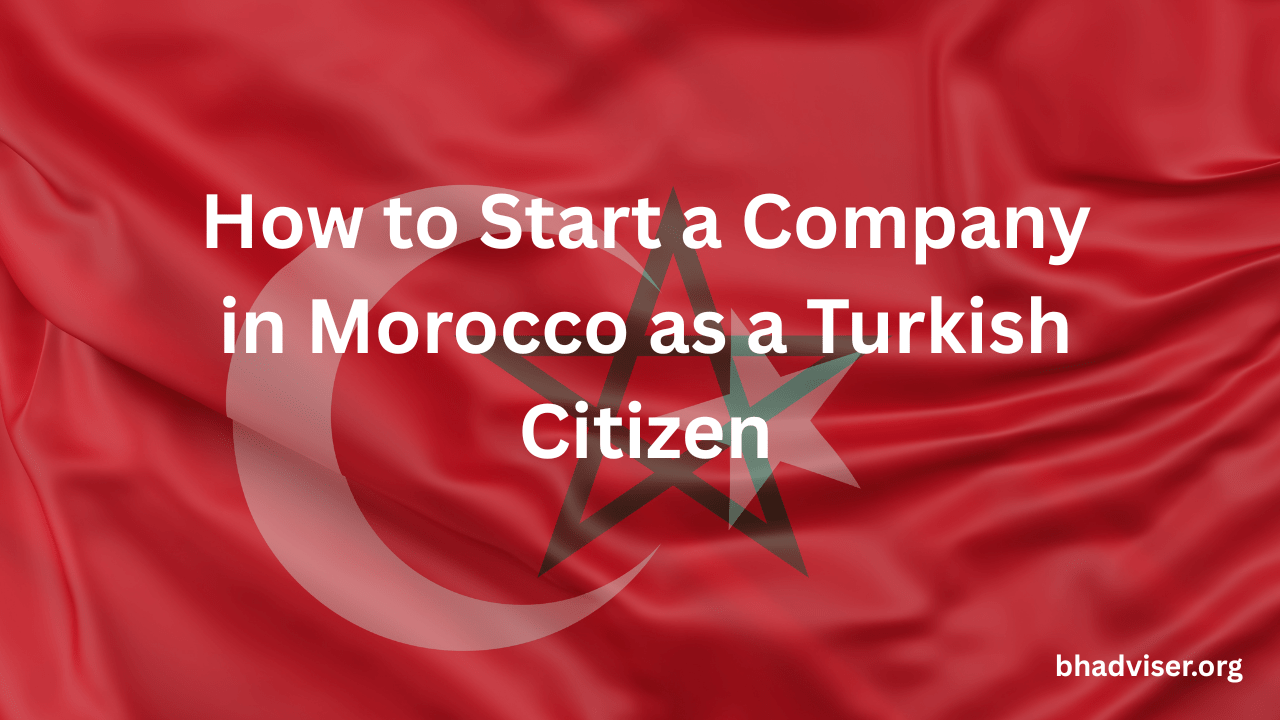Address: 119 Bd de la Résistance, Casablanca 20000
Opening hours :Mon - Fri: 9am-12.30pm and 2pm-6pm Sat: 9am-12pm
Address: 119 Bd de la Résistance, Casablanca 20000
Opening hours :Mon - Fri: 9am-12.30pm and 2pm-6pm Sat: 9am-12pm

Starting a company in Morocco as a Turkish citizen is absolutely possible and strategically rewarding. Morocco offers an investor-friendly legal framework, no nationality restrictions for most sectors, and various tax incentives. As a Turkish entrepreneur, you can establish a limited liability company (SARL), open a branch, or partner via a joint venture. Thanks to the Free Trade Agreement between Morocco and Turkey, you can also benefit from preferential trade terms.
Morocco’s strategic position at the crossroads of Europe, Africa, and the Middle East—combined with its stable government and pro-business reforms—makes it a gateway for Turkish companies looking to expand their footprint internationally.
The most common legal entities:
Obtain the “Certificat Négatif” from the Moroccan Office of Industrial and Commercial Property (OMPIC).
Prepare and notarize the company statutes (statuts), including:
You will obtain:
File all documents with the Tribunal de Commerce to receive:
Mandatory if you plan to hire employees.
Morocco is Africa’s leading car exporter and offers logistics zones in Tangier and Kenitra.
Turkey’s agri-tech can easily align with Morocco’s olive, citrus, and spice industries.
Leverage Morocco’s low-cost labor and access to EU markets for textile production.
With state-backed solar and wind projects, this sector is ideal for joint ventures.
Rising internet penetration and mobile usage have created a booming digital market.
Thanks to strong bilateral trade relations and Turkey’s positive brand image in Morocco, Turkish investors enjoy trust and smoother market entry, especially in sectors like textiles, construction, and retail.
Yes. You can own 100% of the shares unless you’re operating in restricted sectors like agriculture or fisheries.
No. It’s not mandatory, but a local partner can help navigate administrative processes.
Yes, with a well-prepared business plan and company registration documents, a long-term visa or residence permit is possible.
Usually 3 to 7 days, depending on document preparation and sector.
Book your session today and start your business with expert guidance.